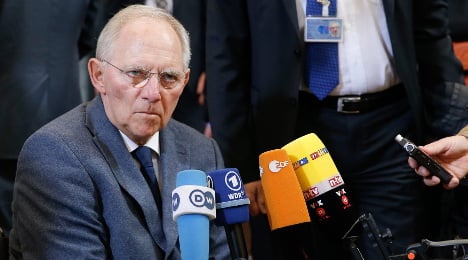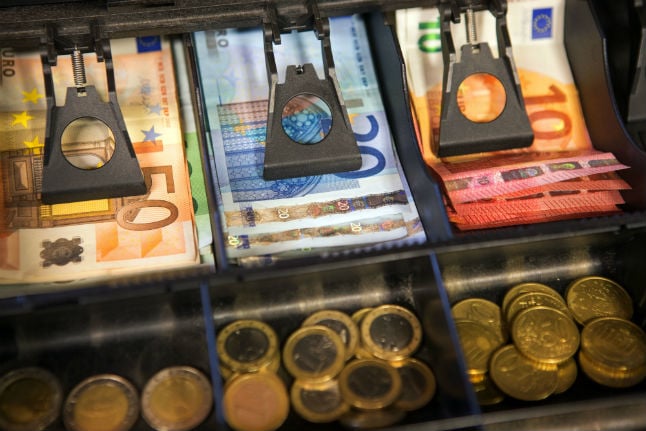The influential Schäuble was speaking in response to a claim by Greek Finance Minister Yanis Varoufakis that Athens would deal "individually" with its EU, IMF and ECB creditors when bailout talks begin on Wednesday.
"Well, then his ideas have to be corrected," Schäuble told journalists in Brussels, a day after eurozone ministers agreed to begin talks that could lead to more cash for Athens and an extension of its current bailout beyond June.
"The institutions will do that together," he said.
Greece agreed with eurozone partners on Monday that talks in Brussels on Wednesday would be accompanied by visits to Athens from officials from the European Commission, International Monetary Fund and European Central Bank.
While seemingly minor, the format of the technical talks that begin on Wednesday between Greece and its creditors is a sorely sensitive issue in Athens.
After five years of painful austerity, Greece's leftist government swept to power in January on a hugely popular pledge to refuse all dealings with the troika team of creditors that saw through the tough reforms during two bailouts since 2010.
Prime Minister Alexis Tsipras has backed down on several of his anti-austerity promises, but seeing a return of the troika to Athens would be one of the most painful climbdowns.
During negotiations over the past month, Greece and many eurozone officials have started talking of the "institutions" instead of the "troika" in a nod to Greek sensitivities.
Since the leftists took office in Greece, the outspoken Varoufakis and Schäuble have engaged in a war of words, though the two men sat down after the ministers' meeting on Monday.
"He does not have an easy job. We met yesterday for long and intensive talks," Schäuble said in a rare moment of sympathy towards Varoufakis.
"I always tell him I would not like to change with him," he said, without revealing much about the content of the one-on-one talks.




 Please whitelist us to continue reading.
Please whitelist us to continue reading.
Member comments